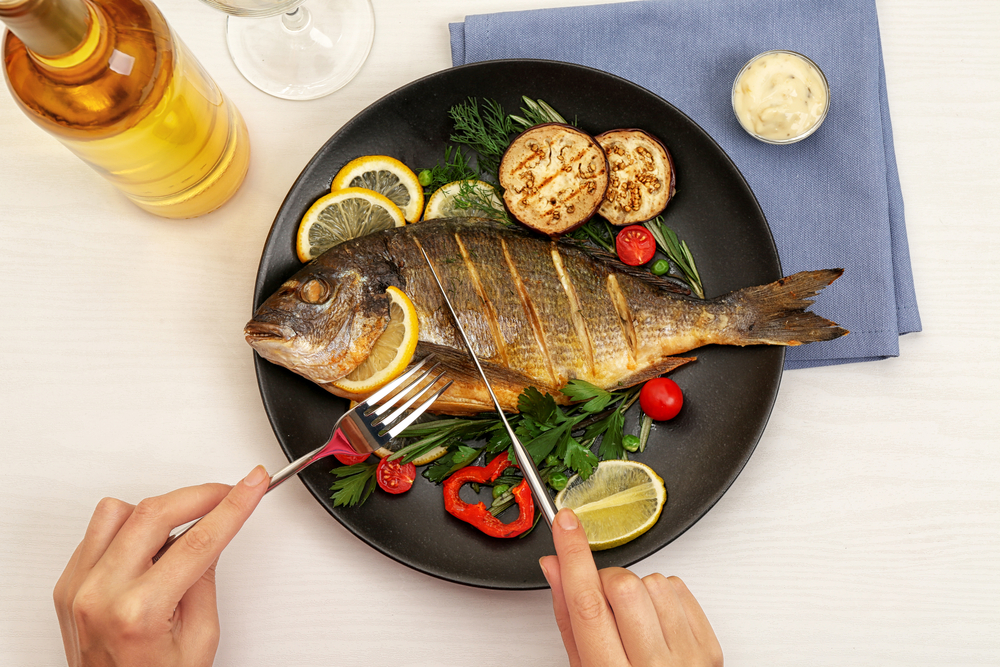Fish is recommended for consumption at least twice per week. Harvard University shows that there are no studies on daily fish consumption and this aspect might be up to you to decide.
Several public health guidelines show us that fish has a positive impact on the body when consumed twice per week.
Most studies on fish nutrition are based on eating fish 2 days per week. This is where the benefits of Omega 3 fatty acids from fish start to be visible on the body. It includes better cardiovascular health and improved joint health.
Fresh fish or canned fish?
Fish is the not most affordable type of protein and it’s not the easiest to cook either. You might think you are eating healthy but canned fish is not always the best. Instead, you should aim to eat fresh fish.
If science doesn’t tell us much about daily fish-eating, there are historic communities with daily access to fresh fish that live long healthy lives. People in the Amazon, the Danube Delta, or those around Iceland have been traditionally eating fish for centuries.
Are these people suffering from any particular disease from this habit? No, but there’s a trick. They eat fish that is fresh and this separates them from most people who buy frozen or canned fish.
Why should we eat fish?
You might be interested in eating more fish, but why would you do it? Fish is high in good fats called Omega acids. Omega 3 and Omega 6 fats are beneficial to skin, nails, joints, and heart health. It could be a better source of protein than red meat according to some studies.
However, like anything, eating the same food every day becomes redundant. Even if it would be 100% recommended by studies, most people still wouldn’t be able to eat fish every day. The particular taste and smell could be off-putting. Even eating the same fruit every day can become tiresome.
Who shouldn’t we eat fish every day?
There’s a myth about pregnant women not being able to eat fish. While there’s some truth to this claim, public health bodies in the US and Europe show that there’s a particular type of fish you need to stay away from while pregnant.
This is long shelf-life fish such as shark or canned tuna. Fresh fish species such as cod are fine for consumption. But even canned tuna can be consumed sporadically during pregnancy. If you aren’t sure which foods are right for you, there’s a high chance you need to discuss your nutrition plan with your doctor.
Fish should not be seen as the main source of food nor as food to avoid completely. Balanced diets and balanced eating is always the best as the body needs more than just protein and fats.
Fruits, vegetables, and grains can be necessary for your daily nutrition plan. This is why even most studies don’t account for daily fish eating as a realistic plan.

















